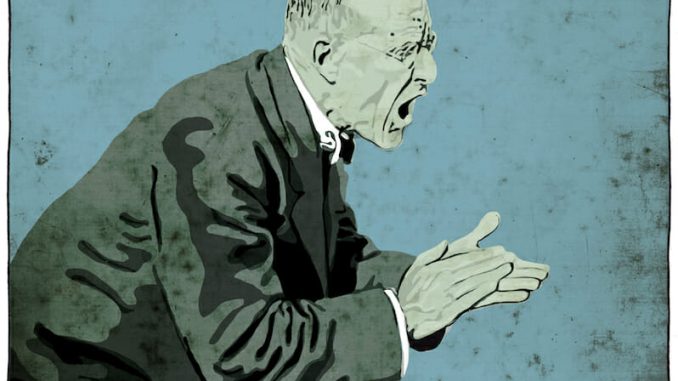
The buildup to the November elections has begun. So far, the primary election results indicate that many people are turning towards the Democratic Party. People are rightfully fed up with Trump’s attacks on women, immigrants, the environment, and his disgusting personal behavior.
We have also seen primary victories for some new candidates like Alexandria Ocasio-Cortez in New York City who call themselves democratic socialists, like Bernie Sanders. They have benefited from people’s discontent with both parties. Like the mainstream Democrats, they tell us that it is elections that can change our situation. They say that we can have a slightly bigger paycheck, a slightly cleaner planet, slightly more tolerant laws and police, and slightly less bloody wars.
But given the problems that we are facing is this the best we can expect? And when in the past have we ever won changes through elections and not because of our own struggles in the workplaces, in our neighborhoods and in mass movements in the streets? So is there anything to gain by participating in elections and if so what and how?
One hundred years ago, a different kind of candidate ran for election. Eugene Debs was a railway worker who became the most famous socialist in U.S. history. Debs got his start organizing in the Brotherhood of Locomotive Firemen. He became convinced workers needed to run for political office too so he ran as a Democrat and was elected to the Indiana state assembly.
In 1894, Debs was part of a strike at the Pullman railway car company that was crushed by federal troops. The Democratic Party fully supported this crackdown on the workers because it threatened their real constituency, the wealthy owners. Debs was jailed for his role in the strike. In jail, he read books about socialism. He realized that it’s not a fair bargain between workers and bosses if the state will always support the bosses. He became convinced that workers couldn’t be treated fairly under the capitalist system, where the government served the bosses. Debs believed that the working class needed to run society themselves.
From 1900 to 1920, Debs was the presidential candidate of the Socialist Party. In this period, strikes took place from the Nevada goldfields to the Massachusetts mill towns. And these struggles forced some of the biggest reforms for workers’ rights in U.S. history. Socialist candidates like Debs were leaders of the struggles in the workplaces. Socialists ran in elections to give the workers a platform to voice their interests.
These candidates didn’t promise that their election would make the system work for the workers. They didn’t want to become the new representatives of this society. Instead they used their campaigns to expose the limits of a system based on greed and exploitation and to call on the working class to get organized to end capitalism and build a new society run for and by the working class. Debs used to say, “When I rise, it will be with the ranks, and not from the ranks.”
A million workers in the U.S., six percent of voters, voted for Debs in 1912. This was the biggest score for any left party in a presidential election in U.S. history. As the world was dragged into World War I, Debs and other socialists spoke out against the war, saying it was based on greed and against the interests of the workers of the world. Debs was imprisoned for his anti-war stance, but he continued his 1920 campaign from his prison cell.
Debs showed that a different kind of electoral campaign than what we see today is possible. Workers can run their own candidates who are workers like them. We can run candidates who don’t lie and say they will make capitalism work for the benefit of workers. They would tell the truth, that real change isn’t won at the ballot box, but by organizing our own forces to defend our interests. Ultimately it means transforming this system and building a better society based on solidarity and cooperation – a socialist society.

